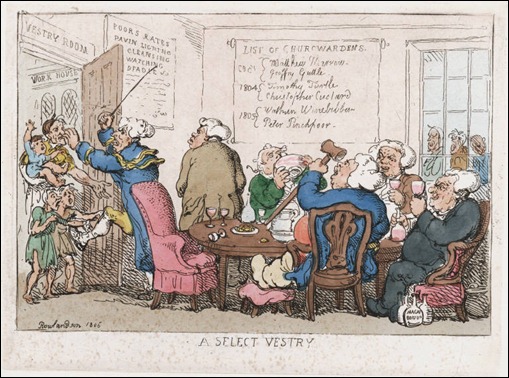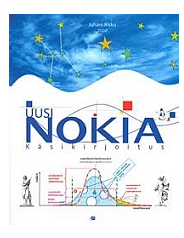The New Bureaucracy
Indoor work relief for the middle classes
John Stuart Mill described the British Empire as “outdoor relief for the middle classes”. The phrase “indoor relief”, at the time, referred to the state-sponsored workhouse programme, which invented jobs for the poor to prevent them being idle. Mill was implying that the Empire was a gigantic job creation scheme.
But in the 21st century the British Empire appears to be resurrecting itself in a very strange and interesting new way. In response to a FOIA request from Leo Hickman, the Guardian’s ethical bloke, we learn of all the donations made for the purpose of climate energy projects by the Foreign Office (FCO).
And it’s fascinating reading.
Wolfie of the IPO
Britain could have invented the iPod – if it wasn’t for a copyright law that everyone ignores. So says the UK government in a remarkable economic justification of the so-called “Google Review”, the Review of IP and Growth led by Ian Hargreaves. The document was written for the government by civil servants at the IPO, part of the business department BIS.
Rescuing Nokia? A former exec has a radical plan
A couple of months ago, a book appeared in Finland which has become a minor sensation. In the book, a former senior Nokia executive gives his diagnosis of the company, and prescribes some radical and surprising solutions. Up until now, the book has not been covered at all in the English language. This is the … Read more
RIP: The copyright quango that wanted to terminate your rights
 The Strategic Advisory Board for Intellectual Property is to be abolished. The Coalition has decided that dismantling copyright is a task that the Intellectual Property Office is quite capable of performing without assistance, and has folded SABIP’s duties back into the IPO.
The Strategic Advisory Board for Intellectual Property is to be abolished. The Coalition has decided that dismantling copyright is a task that the Intellectual Property Office is quite capable of performing without assistance, and has folded SABIP’s duties back into the IPO.
SABIP was founded in 2008 in the wake of the Gowers Report, as a quasi think-tank focusing on copyright policy. New technology has allowed many more people to record and distribute material – “everyone’s a creator” – we’re told, and this hasn’t gone unnoticed. From publishers such as News International to giant web data aggregators such as Facebook, the pressure to weaken the individual’s rights remains enormous. All are eager to exploit amateur material, and drive down the cost of professional material.
BBC, big business leer creepily at orphan works
Big publishers and the BBC have come out to lobby for the controversial Clause 43, that part of the Mandybill that strips photographers of their historical rights.
Is that surprising? It should be, because Clause 43 is the section that deals with ‘orphan works’ – and according to the Business department BIS, the only people who are supposed to benefit from the unique powers it confers are special parties: copyright libraries, such as the British Library. These are non-commercial operations. Clause 43 was never intended act as a leg-up for tight-fisted publishers.
But here they are.
As we noted recently, Clause 43 gives new powers to use an image for which the owner can’t be found. And the prospective user doesn’t really have to try too hard. Effectively the state “nationalises” orphans and gives a free collective licence to anyone who asks.
Suits 2.0 at the BBC
Bureaucracy is the one sure winner in the BBC’s strategic review – the suits and wonks. It’s sort of like natural selection turned upside: in a changing environment, the most useless survive.
Mark Thompson’s review, leaked to the Times today, was supposed to review the Corporation’s output, and it could have helped made inroads into this culture, but it hasn’t. And although the “cuts” are trumpeted to fall on digital operations such as web and DAB, you know what will happen next.
Of course bureaucracy has been the winner of the past ten years – the public sector middle manager on private sector wages and perks is as much a symbol of the era as was the Victorian mill owner. The BBC is no exception. Whether it’s a ‘crisis’ (Ross/Brand) or an opportunity (Web 2.0), layers of process are added at the corporation.
Junk science and booze tax – a study in spin
“Let’s find out what everybody is doing, and stop them doing it” – A P Herbert Putting the price of alcohol up to a minimum of 40p a unit would keep 41,000 people a year out of hospital, save the NHS £116m a year, and avoid 12,400 cases of unemployment, a report from Sheffield University … Read more
The dumb, dumb world of Malcolm Gladwell
Have you ever had the nagging sense that there’s something not quite right with the adulation that follows Malcolm Gladwell – the author of Tipping Point? But you couldn’t quite put your finger on it? We’re here to help, dear reader.

Gladwell gave two vanity “performances” in the West End – prompting fevered adulation from the posh papers – the most amazing being this Guardian editorial, titled In Praise of Malcolm Gladwell.
It appears that we have a paradox here. A substantial subclass of white collar “knowledge workers” hails this successful nonfiction author as fantastically intelligent and full of insight – and yet he causes an outbreak of infantalisation. He’s better known for his Afro than any big idea, or bold conclusion – and his insights have all the depth and originality of Readers Digest or a Hallmark greeting card. That’s pretty odd.
So what’s really going on here? Who is Malcolm Gladwell? What’s he really saying? Who are these people who lap it all up? And what is it that he’s saying that hold so much appeal?
Let’s start with the first two first.
The Master at Work
Gladwell is a walking Readers Digest 2.0: a compendium of pop science anecdotes which boil down very simply to homespun homilies. Like the Digest, it promises more than it delivers, and like the Digest too, it’s reassuringly predictable.
Miliband goes mad for Web 2.0
David Miliband, the environment minister tipped to be the next Labour Party leader by a friendly Westminster press, says “a new spirit” is afoot in the UK, brought about by Web 2.0.
Miliband said the web had polarised debate into competing extremities, where the truth was decided by whoever shouted the loudest. Traditional engineering values, where things work, had been replaced by a “Permanent Beta” mentality where the vendor tries to escape its responsibilities by selling the company before it has to fix its own bugs.
He also lamented the devaluation of expertise in favour of what he called “a permanent idiocracy”. He painted a picture of high streets decimated by home shopping, and an atomised and fragmented society that could only express itself by blogging into the digital ether. The political class, Miliband concluded, had a duty to temper this dark side of technology.
Impressive stuff, or what?





